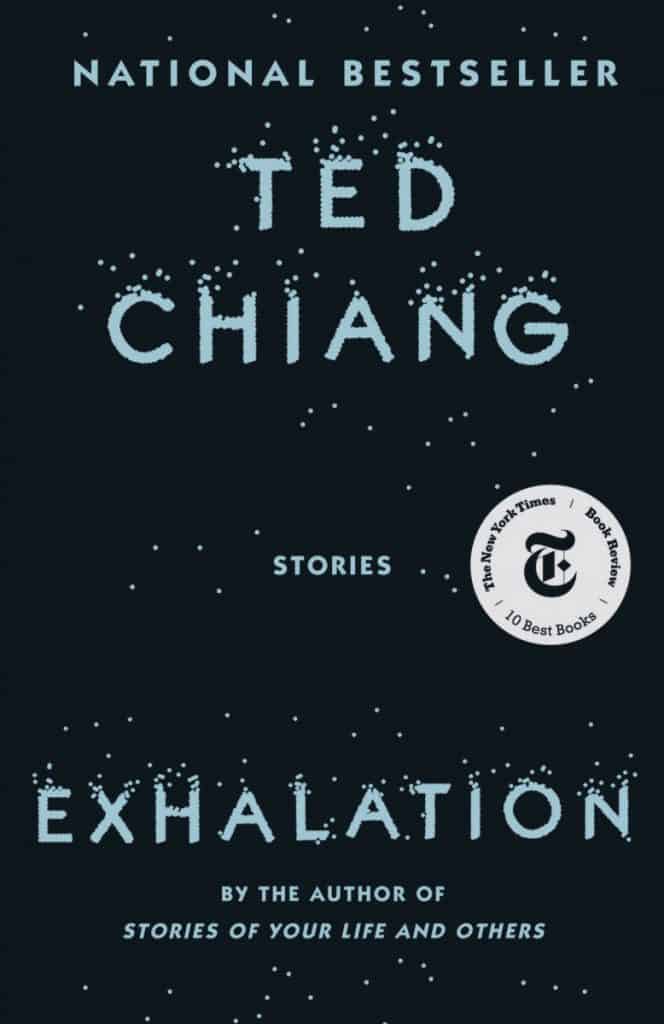


| Personal Brand Presence | 7 / 10 |
| Authoritativeness | 5 / 10 |
| Expertise | 6 / 10 |
| Influence | 5 / 10 |
| Overall Rating | 6 / 10 |
Ted Chiang is a science fiction author from America. In addition to six Locus awards, his work has garnered four Hugo awards, four Nebula awards, and the John W. Campbell Award for Best New Writer. The 2016 motion picture Arrival was inspired on his short tale “Story of Your Life”. From 2020 to 2021, he was an artist in residence at the University of Notre Dame. Chiang also frequently contributes non-fiction pieces to the New Yorker Magazine; most recently, he covered computer technology-related subjects like artificial intelligence.

Exhalation: Stories is a collection of short stories by American writer Ted Chiang. The book was initially released on May 7, 2019, by Alfred A. Knopf. This is Ted Chiang’s second collection of short works, after the 2002 book Stories of Your Life and Others. Exhalation: Stories contains nine stories exploring such issues as humankind’s place in the universe, the nature of humanity, bioethics, virtual reality, free will and determinism, time travel, and the uses of robotic forms of A.I.
Ted Chiang on AI risks:
What we really need to know is, is there any way to prevent artificial intelligence (A.I.) from turning into yet another McKinsey? It is worthwhile to examine the subject in light of various interpretations of the word “A.I.” When considering artificial intelligence (A.I.) as a broad category of technologies offered to businesses with the intention of reducing costs, the question that arises is how to prevent these technologies from serving as “capital’s willing executioners.” On the other hand, if you view artificial intelligence (A.I.) as a semi-autonomous software system that responds to human requests for assistance, the question becomes: how can we stop this software from helping companies in ways that negatively impact people’s lives? Let’s say you’ve created a semi-autonomous artificial intelligence that is completely obedient to people. It constantly verifies that it hasn’t misunderstood the instructions it has been given. Many researchers in AI aspire to this. However, such software is still capable of doing just as much damage as McKinsey has.
Be aware that you cannot just declare that the artificial intelligence you will create will solely provide pro-social answers to the issues you want it to address. It is akin to suggesting that you may build a consulting business that specializes in providing solutions like that in order to neutralize the danger posed by McKinsey. The truth is that McKinsey will be hired by Fortune 100 corporations rather than your pro-social company because of its solutions’ greater ability to boost shareholder value. You can always create an artificial intelligence (A.I.) that prioritizes shareholder value over all other considerations, and the majority of businesses will choose to use that AI over one that is restricted by your values.
Cryptocurrency, like any other currency, is a financial instrument based on the fundamental economic principles of supply ...
Know MoreWith the current fast-growing crypto market, the significance of reliable and secure wallet solutions cannot be emphasized ...
Know More